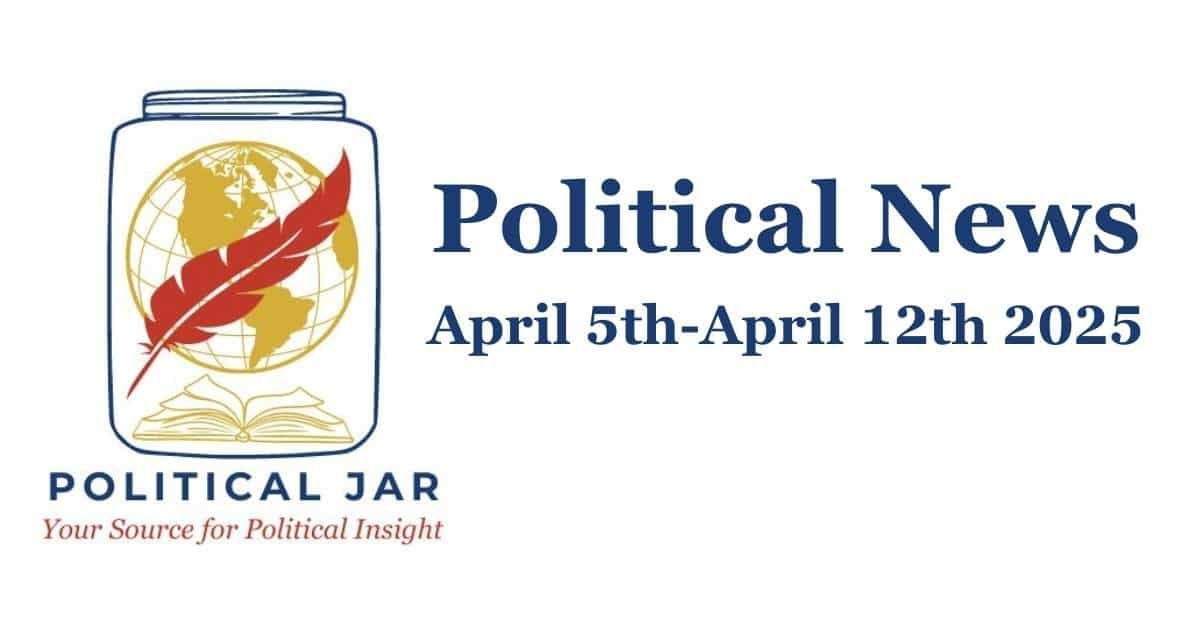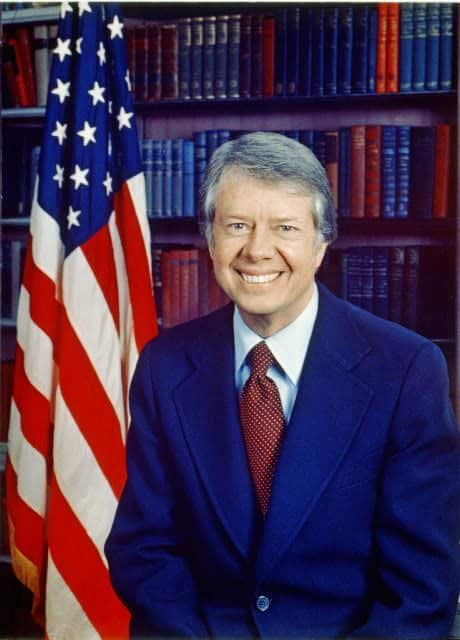
Political Week in Review: April 5–12, 2025
By Political Jar
The second week of April 2025 was marked by significant political developments both domestically and internationally. From widespread protests in the United States to escalating trade tensions and shifting political landscapes abroad.. Here’s an overview of the key political happenings during this period.
1. Massive ‘Hands Off!’ Protests Sweep the U.S.
What Happened:
On April 5, 2025, millions of Americans participated in the “Hands Off!” protests across more than 1,400 locations nationwide. These demonstrations were organized in response to President Donald Trump’s policies, including significant cuts to social services like Social Security and Medicaid, aggressive immigration enforcement, and the influence of Elon Musk’s Department of Government Efficiency (DOGE). The protests were largely peaceful, with no arrests reported by midday Sunday.
Why It Matters:
The scale of these protests reflects widespread public dissent against the administration’s policies. The involvement of various organizations and the peaceful nature of the demonstrations highlight a growing movement advocating for the protection of social services and democratic institutions.
2. Trump Administration Announces 90-Day Tariff Pause
What Happened:
President Trump announced a 90-day pause on reciprocal tariffs, excluding China, which now faces a 145% tariff rate. This decision came after significant market volatility and criticism from business leaders. The announcement led to a temporary rally in global markets, though concerns about long-term economic stability remain.
Why It Matters:
The tariff pause indicates the administration’s responsiveness to economic pressures and market reactions. However, the exclusion of China and the high tariff rate imposed could exacerbate tensions between the two countries, potentially impacting global trade dynamics.
3. Senate Votes to End Northern Border ‘Emergency’ Declaration
What Happened:
On April 2, 2025, the U.S. Senate voted 51-48 to pass a resolution seeking to end President Trump’s national emergency declaration at the northern border, which had been used to justify tariffs on Canadian imports. The resolution, led by Senator Tim Kaine, criticized the emergency as a pretext for imposing tariffs. While the resolution passed the Senate, it faces challenges in the Republican-controlled House.
Why It Matters:
The Senate’s action represents a rare bipartisan challenge to the administration’s trade policies. The outcome could influence future executive decisions regarding trade and emergency declarations.
4. Bernie Sanders and AOC Rally Tens of Thousands in Los Angeles
What Happened:
Senator Bernie Sanders and Representative Alexandria Ocasio-Cortez held a massive rally in downtown Los Angeles, drawing tens of thousands of supporters. The event, part of their “Fighting Oligarchy” tour, featured performances by Joan Baez, Neil Young, and Maggie Rogers. Sanders emphasized the urgency of addressing economic inequality and protecting democratic institutions.
Why It Matters:
The rally underscores the growing momentum of progressive movements in the U.S. The large turnout reflects public support for policies aimed at reducing economic disparities and promoting social justice.
5. French Far-Right Protests Erupt Over Le Pen’s Conviction
What Happened:
Supporters of Marine Le Pen organized protests across France following her conviction for embezzlement, which rendered her ineligible to run in the 2027 presidential election. The demonstrations, led by the National Rally and other right-wing groups, were met with counter-protests from centrist and leftist factions.
Why It Matters:
The protests highlight the deep political divisions within France and the potential for increased polarization ahead of the 2027 election. The situation also raises questions about the integrity of political institutions and the rule of law in the country.
6. Australian Federal Election Campaign Intensifies
What Happened:
In Australia, Prime Minister Anthony Albanese and Opposition Leader Peter Dutton unveiled major policy proposals as part of their federal election campaigns. Albanese announced a $1,000 automatic tax deduction for work-related expenses and a $10 billion investment in housing for first-time buyers. Dutton proposed a $1,200 tax cut for middle-income earners and a nuclear energy plan.
Why It Matters:
The contrasting policy proposals reflect differing visions for Australia’s economic future. The election outcome could significantly impact the country’s approach to taxation, housing, and energy policy.
7. UK Labour Party Faces Challenge from Reform UK
What Happened:
Labour leader Sir Keir Starmer is preparing for a significant political challenge from Reform UK, led by Nigel Farage. Reform UK is gaining traction in traditional Conservative areas and positioning itself as a primary opposition to Labour in working-class regions.
Why It Matters:
The rise of Reform UK indicates a shifting political landscape in the UK, with potential implications for future elections and party dynamics. Labour’s response to this challenge will be crucial in maintaining its political dominance.
Stay tuned to Political Jar for continued coverage and analysis of these and other critical political events.


